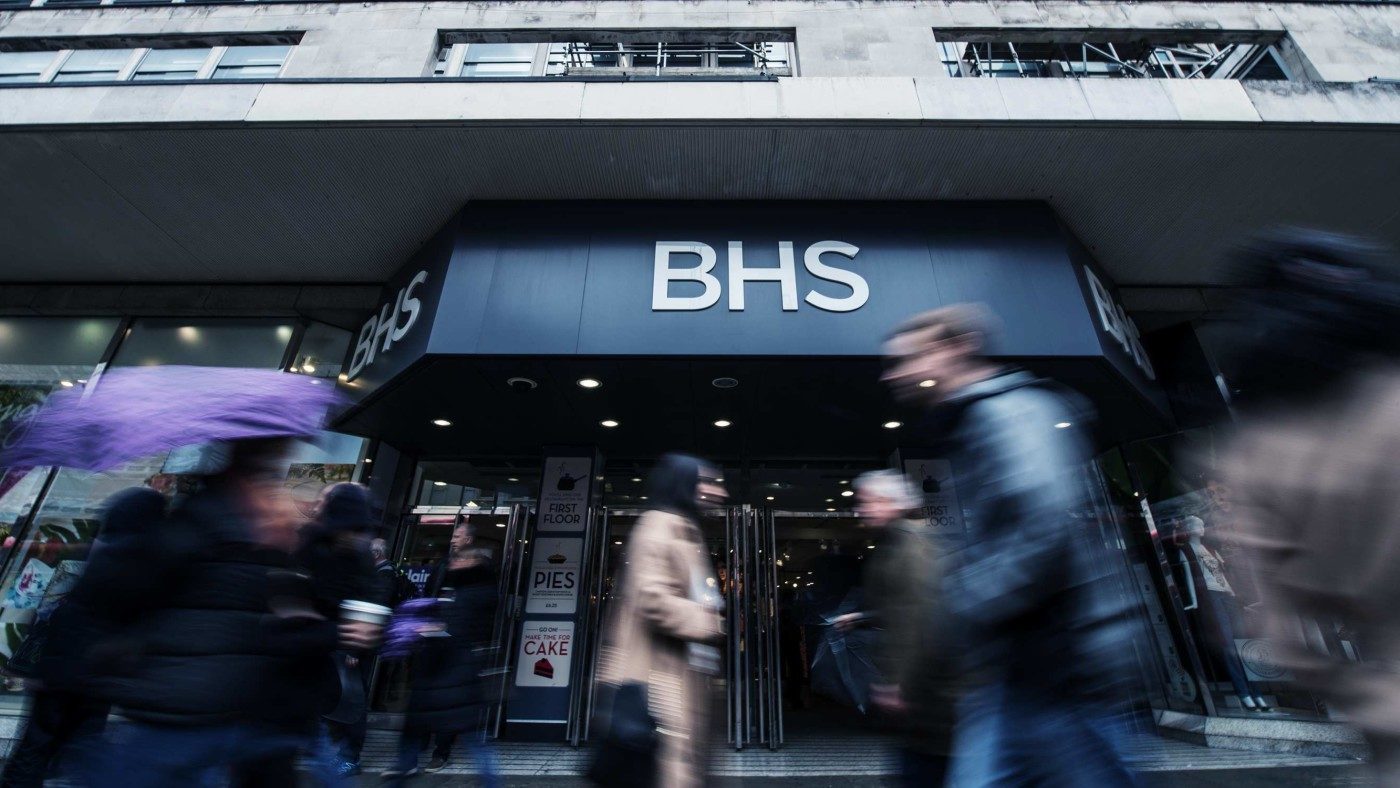By 2015 BHS (British Home Stores) was evidently not the kind of retail business to be turned around quickly, easily and without massive investment. Conduct a straw poll of friends and family, and see how few count themselves even as irregular shoppers there. When Sir Philip Green famously sold BHS to Dominic Chappell and his inexperienced team at Retail Acquisitions for a token £1 last year, he surely cannot have anticipated that the controversial two-time bankrupt was going to succeed where he had failed.
Times are notoriously tough at the moment for Britain’s top retailers. Marks & Spencer has employed an endless stream of celebrity photographers, models and designers to reboot its troubled fashion business. A few years ago, Tesco seemed invincible. Now it finds its market-share under assault by the sudden emergence of discount supermarkets and changing consumer habits. By the time Sir Philip came to sell BHS in 2015, it had lost 800,000 shoppers in the space of five years.
If retailers are to survive they need to be nimble, well-branded, with a strong internet presence, freshly-updated stores and the ability to compete fiercely on price. BHS can claim to tick none of those boxes. For a long time now it has been loss-making, investment-starved and tired. Sir Philip knew which way the wind was blowing and after years of taking huge dividends and loading its balance sheet with cheap debt, sold off the ailing chain. Retail Acquisitions, meanwhile, set about draining any remaining value from the company, pocketing millions from loans, property sales and a financial restructuring package intended to put BHS on a firmer footing.
Thankfully, the government-backed Pension Protection Fund is in good enough nick not to be too troubled by the prospect of BHS’s collapse, boasting a surplus of £4.8 billion in 2014/15. But let us not forget that the PPF is funded by a levy on all businesses with similar pension schemes, with the taxpayer as the ultimate guarantor. Some of these businesses now pay more annually to the PPF than they do in corporation tax. It is surely outrageous that during any sale negotiations of a financially troubled company, both vendor and purchaser should be able effectively to factor in the likely impact of a PPF intervention.
Such intervention is designed as a last resort in the event of a sudden, genuine insolvency, not to pick up the pieces from the collapse of a company that has been deliberately, systematically overleveraged. BHS pensioners and trade creditors, many of whom are small business people, now face crippling uncertainty from the company’s collapse. Meanwhile Retail Acquisitions and Sir Philip, notwithstanding his latest offer to contribute £80 million to a £570 million deficit in the company pension scheme (which he inherited in surplus), will walk away relatively untroubled.
On the one hand, the BHS story is one which illustrates a functioning capitalist system. In failing to keep up with changes in the market, it has lost out to those rivals who did invest, innovate and meet the needs of customers, who are the ultimate beneficiaries of healthy competition. In contrast, it is also a cautionary tale about how the rules of the game can be manipulated by those who are happy to pocket cash in the good and bad times, before leaving the bill for any collapse with responsible businesses, employees, suppliers and, potentially, taxpayers.
The bailout of global banks with taxpayers’ money in the wake of 2008’s financial crisis enraged electorates across the Western world because it seemed to highlight that the international elite had designed a ‘’heads I win, tails you lose’ system. With banks chastened and far less profitable than their pre-crash incarnations, focus for public anger has shifted in recent years towards a new generation of corporate giants and super rich individuals whose tax arrangements and corporate dealings are subject to public scrutiny as never before.
This anger cannot simply be written off as the whining of the envious and anti-capitalist. It is instead the frustration of the responsible middle-classes, who feel they have been mis-sold a promise that hard work, innovation and talent will be given just reward while malpractice will be punished. As wages have stagnated and living costs risen, more and more people now feel frustrated by a global elite that seems not only immune from the headwinds battering everyone else but largely uncommitted to and disconnected from the communities that their money influences.
Faith in capitalism is already much-diminished by all that continues to happen in the eight years since the financial crash. If it is to be rebuilt, it is vital that we come down hard on those who engage in misconduct or on practices which give free market capitalism a bad name. The Conservative Party must not cede leadership on these issues to our political opponents, who seem set to pollute the waters with the politics of envy and resentment for success. It is for my Party to uphold and defend the principles that make capitalism work. In the case of BHS, this means reminding the Pension Protection Fund that it has the power to pursue those who deliberately attempt to avoid their pension obligations. It will also entail a much longer project that sees us relentlessly close down any avenue that allows those who happily privatise vast profits then socialise similarly vast losses onto others, and, in the final analysis, onto the taxpayer.


